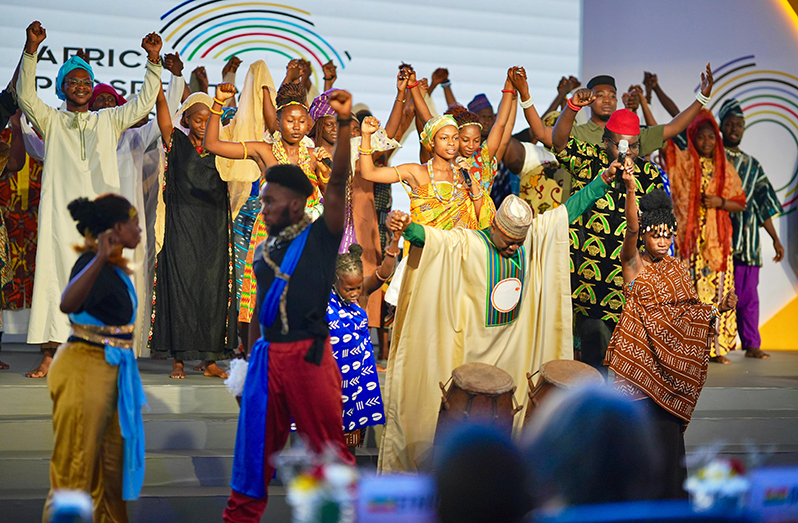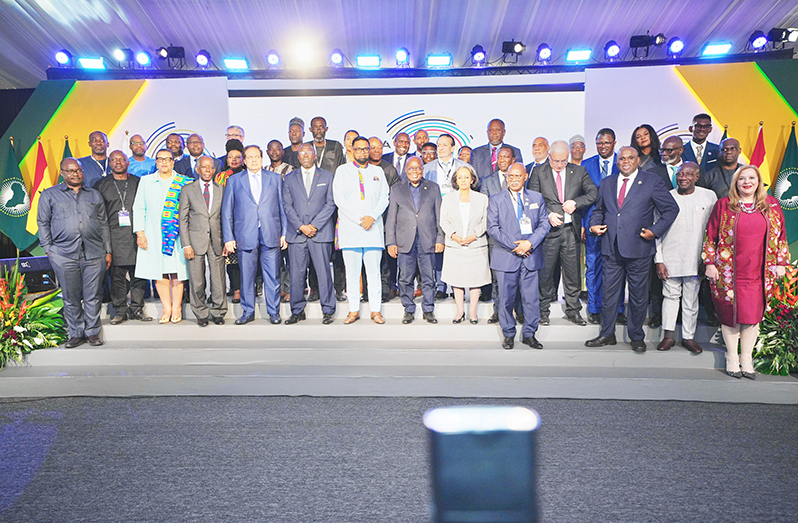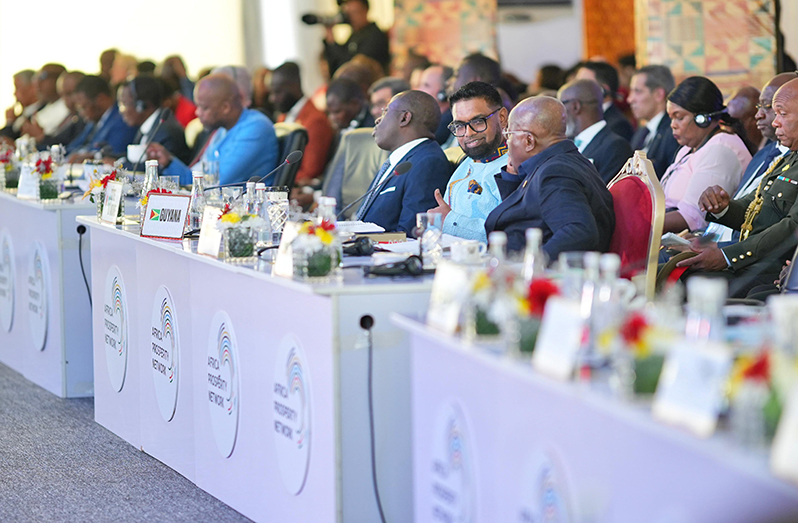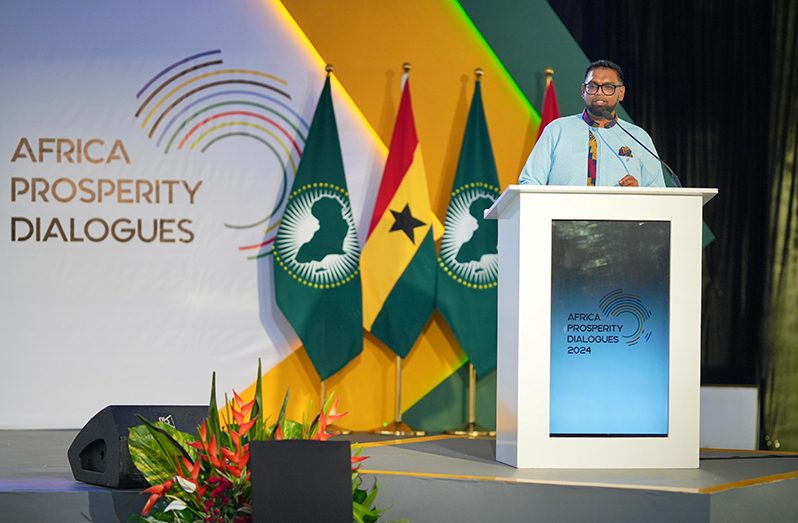Time for mechanism, structure to secure reparations
The following article is republished from The Guyana Chronicle and was written on January 28, 2024 by Trina Williams.
–President Ali urges African leaders; encourages immediate action during African Prosperity Dialogues
PRESIDENT, Dr Irfaan Ali has noted that time is of the essence and advancement must be made towards creating a mechanism that leads to reparations.
During a panel discussion at the African Prosperity Dialogues, the President told African leaders who were present not to allow themselves to fall into the discussion of whether slavery has been recognised as a grave human violation, because it already has.

But instead, he said they must focus on getting the guilty party to move from the apology stage to creating a mechanism.
He related: “The very fact that we have took hundreds of years to move to the stage of an apology also signifies that the recognition has been made by those who are guilty, and the guilty party has moved towards an apology. So, we should never again take this debate back to whether there is recognition.”
He added, “What is needed now, is the mechanism, the structure, how are we going to move from apology to a mechanism that leads to reparation and that definitely cannot take another 100 years; that has to be dealt with now and that should be the only part that should be the focus.”
The Guyanese Head-of-State, while stressing that there is nothing to gloss over, rhetorically asked the fellow leaders if they planned to wait another hundred years to usher in the mechanism for reparations.
“No, we must move to the mechanism now!” he said.
The African Prosperity Dialogues is a three-day conference. It concluded Saturday and was centred on the necessity of putting up specific recommendations that will enable Africans to achieve prosperity on the continent.
The event highlighted the special opportunity that the African Continental Free Trade Area (AfCFTA) offers Africa and the people to break free from the widespread perceptions of poverty, unemployment, and underdevelopment with which the continent is so often associated.
It is organised in close collaboration with the AFCFTA Secretariat, which is based in Ghana’s capital, Accra. Dr. Ali, over the past years, has been championing several causes, many of which involved the maintenance of peace and unity.
The Guyanese leader has also been vocal on matters that involve the global disparities faced by developing countries, as well as matters of women’s and children’s rights.

In a previous address at a high-level meeting to commemorate the 20th anniversary of the Durban Declaration and Programme of Action that was held under the theme, “Reparations, racial justice and equality for people of African descent,” President Ali told world leaders: “Guyana is committed to gaining international reparations for the crime of African enslavement.
Reparative justice must not only include a full and unconditional apology from those responsible and/or who benefitted from the transatlantic trade in captive Africans and their consequent enslavement, but must go beyond apology.”
The President said that it is in this regard that Guyana will continue to support efforts being made within the Caribbean Community to press for the convening of an international summit to demand reparative justice for the victims of the transatlantic slave trade, African enslavement, and its enduring effects.
The Head of State also reaffirmed Guyana’s commitment to the implementation of the Durban Declaration and Programme of Action and said that the country was pleased to join in adopting the Declaration.
President Ali said that the Durban Declaration and Programme of Action is a comprehensive, action-oriented document that proposes concrete measures to combat racism, racial discrimination, xenophobia, and related intolerance.
He also emphasised that equality and non-discrimination are not only fundamental principles of international human rights and international humanitarian laws, but are also at the root of political, social, and economic development.
He said that as global leaders collectively strive to achieve the Sustainable Development Goals (SDGs), they must be conscious that the overarching objectives of poverty eradication, protecting the planet, and building a peaceful world cannot be achieved without addressing all forms of inequality.
“Despite advances made over decades of struggle, racism and racial discrimination continue to be sources of conflicts and inequalities among people in all regions of the world.
“I am proud to belong to a country that honours and celebrates its ethnic diversity. Our people seamlessly participate in each other’s religious and cultural festivals and traditions. In many ways, we can be a wonderful example to the world,” President Ali said.

Notably, last year, heirs of the late British slave owner John Gladstone- the father of 19th century Prime Minister William Gladstone- issued an official apology to Guyana for the historical injustices of both slavery and indentureship.
Charles Gladstone, representing the family, expressed deep shame and regret for their ancestors’ role in these crimes during the launch of the Centre of Migration and Diaspora Studies at the University of Guyana.
“It is with deep shame and regret that we acknowledge our ancestors’ involvement in this crime. With heartfelt sincerity we apologise to the descendants of the enslaved in Guyana,” Gladstone stated.
Noting that slavery was a crime against humanity, Charles said that his family has pledged to improve Guyana and forge meaningful relationships with the nation. John Gladstone owned 2,500 enslaved Africans on his plantations.

